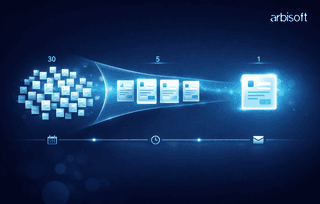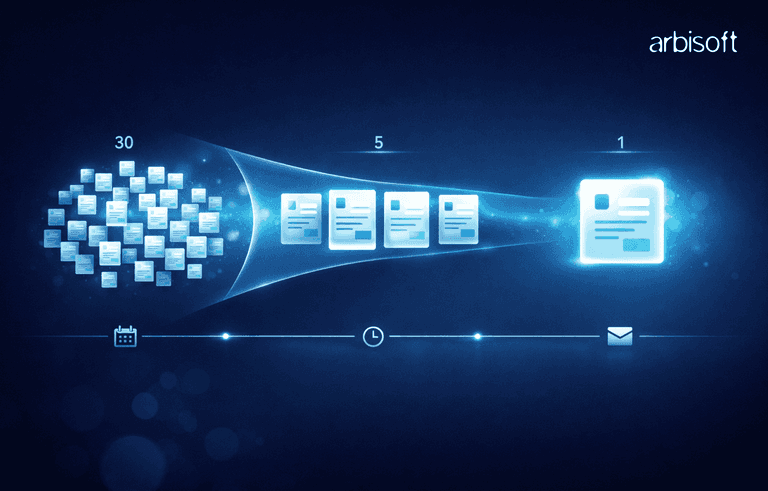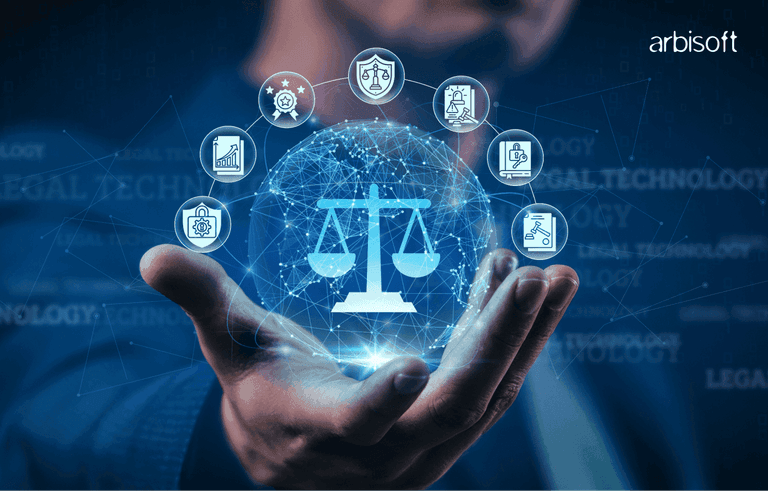We put excellence, value and quality above all - and it shows




A Technology Partnership That Goes Beyond Code

“Arbisoft has been my most trusted technology partner for now over 15 years. Arbisoft has very unique methods of recruiting and training, and the results demonstrate that. They have great teams, great positive attitudes and great communication.”
Why Your Business Should Consider Databricks in 2026: Strategic Benefits of Databricks Lakehouse for Data-First Companies
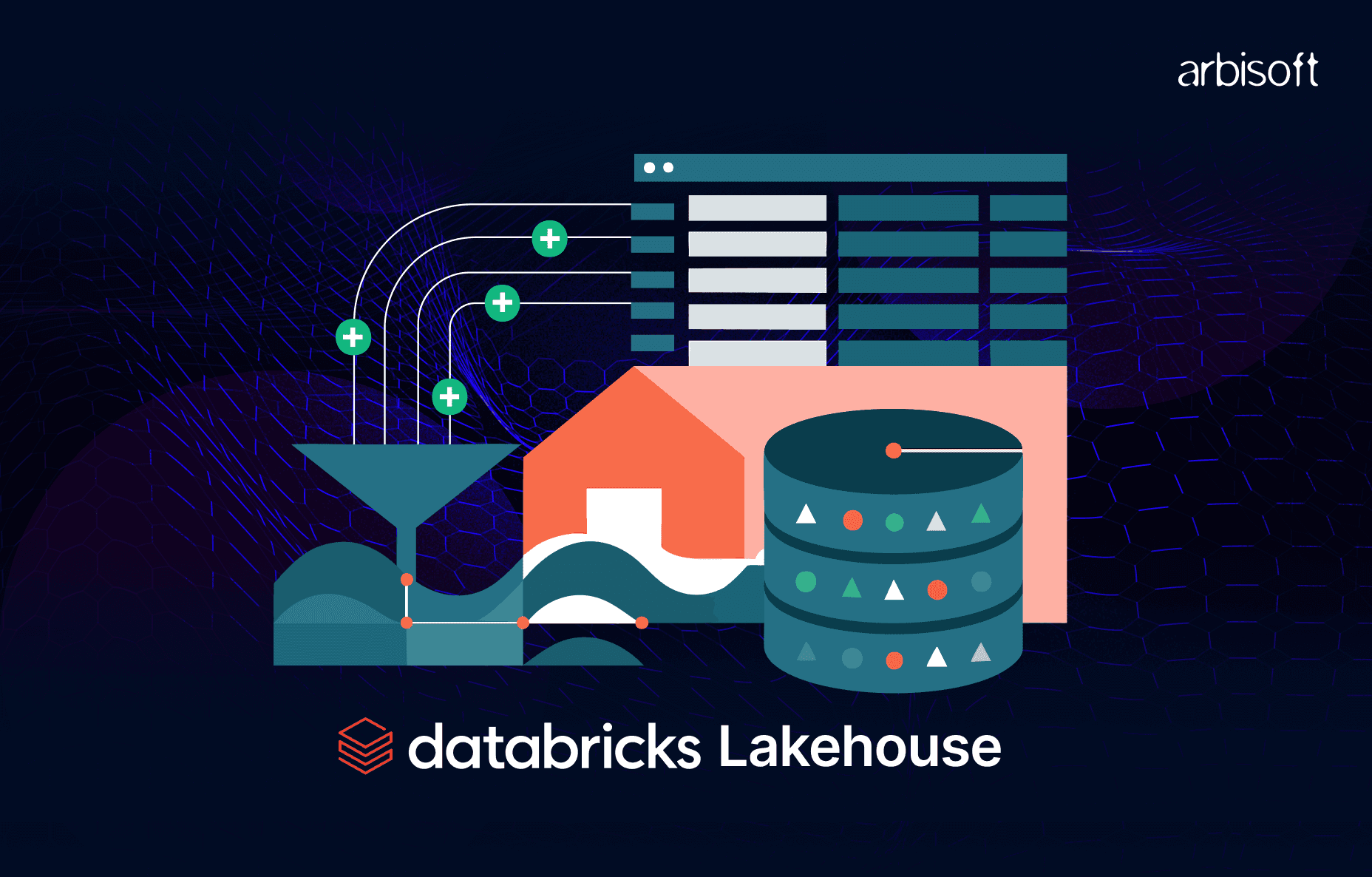
In today’s digital-first world, data has become the backbone of innovation and competitive advantage. As businesses generate and consume more data than ever before, the ability to harness that data efficiently and intelligently is no longer optional; it’s strategic. In 2026, companies that thrive will be the ones that adopt platforms designed for agility, scale, and AI-readiness. Databricks, with its Lakehouse architecture, offers a unified approach that bridges the gap between traditional data warehouses and modern data lakes, making it a top choice for businesses seeking specialized Data consulting services.
This blog explores why your business should seriously consider adopting Databricks in 2026 and how it can transform your data into a true strategic asset.
In today’s era, every business is generating data, but the question is whether you are using this data for efficient decision-making. If yes, then what is the in-place data infrastructure you are maintaining? Does it have the capability to cope with the upcoming challenges like managing data diversity, scalability, governance, availability, and optimization? If there is no data infrastructure in place, then this blog is for you. The winner in every industry will be a data + AI-enabled business.
Databricks - Lakehouse & Data Intelligence Platform
Databricks pioneered the lakehouse architecture in 2020, giving us the best of both worlds data warehouse and a data lake, and to date, 74% of global enterprises have adapted this architecture. Databricks gives us a unified architecture for managing structured, semi-structured, and unstructured data.
It also supports real-time data applications, AI, and BI (Business Intelligence) use cases in a single platform, providing a unified catalog for governance. Databricks stores the data in your underlying cloud and uses compute resources from the same.

Databricks, a Lakehouse platform that unifies the foundation for all your data with added Generative AI assistants like Mosaic AI, Genie, helps understand the semantics of data, optimize costs, and automate data quality. This makes it a Data intelligence Platform that democratizes data & AI across your entire organization. Databricks is a Gartner-recognized leader for Database management systems, data science, and machine learning platforms.
Key Strategic Benefits for Businesses Using Databricks
1. Unified Platform
Databricks is the only platform that enables data engineering, machine learning, AI, and BI within a single platform with so much might. The Databricks platform was created by the same team that created very powerful tools and frameworks like Apache Spark, Delta Lake, and MLflow.
Let us discuss an example of a retail fashion brand that has country-wide retail shops, e-commerce stores, and runs marketing campaigns on multiple platforms. They have separate ERPs managing data for multiple in-house departments like HR, accounts, supply chain, and engineering. They also use a wide range of tools, from open source to managed services and licensed tools, to perform analytics and AI-driven decisions to elevate revenues and ROIs.
Data is present in silos, less collaboration between different ecosystem tools, governance becomes a headache, and all this needs multiple technical and experienced development teams with a wide range of tools expertise. Databricks is a single platform that can unify and solve all data management, AI & BI needs and the business does not need a wide range of services, tools & platforms and eliminate can silos. A single databricks ecosystem and a single team can fulfill business needs and add value.
2. Open Ecosystem
Databricks supports open formats like Parquet, Delta, and open APIs. It is compatible with all the modern era data tools and can easily be integrated into any business.
3. Cost Efficiency
As this unified data lake house and intelligence platform is alone enough for all data, AI, and analytics needs, it directly impacts cost by eliminating the need for multiple platforms, subscriptions, licensing cost, and their development teams. Not only this, but it also gives optimized compute costs, and big data can easily be processed using photon-enabled engines.
4. Scalability & Performance Efficiency
Databricks provides auto-scaling clusters and now serverless options as well. It enables efficient file management using z-ordering and liquid clustering, and optimization.
5. Governance and Security
Unity catalog in databricks enables centralized governance and provides fine-grained access controls, audit logs, and secure personally identifiable information (PII data). All the source's credentials can be managed securely and never exposed to any code or user.
6. AL & ML Enablement
Databricks provides native support for machine learning and AI libraries. It enables native MLflow, which manages and tracks the machine learning life cycle. It enables data scientists and machine learning engineers to perform exploratory data analysis, feature engineering, model experimentation, and tracking, and finally deploy scaled machine learning model pipelines. It is the only platform that enables modern state-of-the-art LLMs, available open source or custom-produced generative AI models from prompt engineering to RAGs to finetuning and deployment.
7. GenAI-Powered Assisted BI and Analytics
Databricks’ Genie feature uses Gen-AI and enables simple natural language text to SQL statements and draws analytics for non-technical users, which can enable organization-wide self-service analytics for all users. It is governed by the Unity catalog with its provided access to data. It provides the traditional dashboarding capabilities as well.

Why is 2026 the Right Time?
The year 2026 marks a critical inflection point for data-driven organizations. With the explosion of AI adoption across industries, businesses are racing to integrate large language models (LLMs) and generative AI into their workflows. Databricks Lakehouse stands out as a platform purpose-built for this shift, seamlessly combining data engineering, analytics, and machine learning under one unified architecture.
At the same time, organizations are grappling with unprecedented data volume and complexity, demanding platforms that are scalable and flexible. Additionally, in a competitive landscape where speed of insight is a differentiator, Databricks enables faster experimentation and time-to-value through collaborative notebooks, versioned data, and real-time processing. Simply put, 2026 is the year when data agility isn’t just beneficial, it’s business-critical.
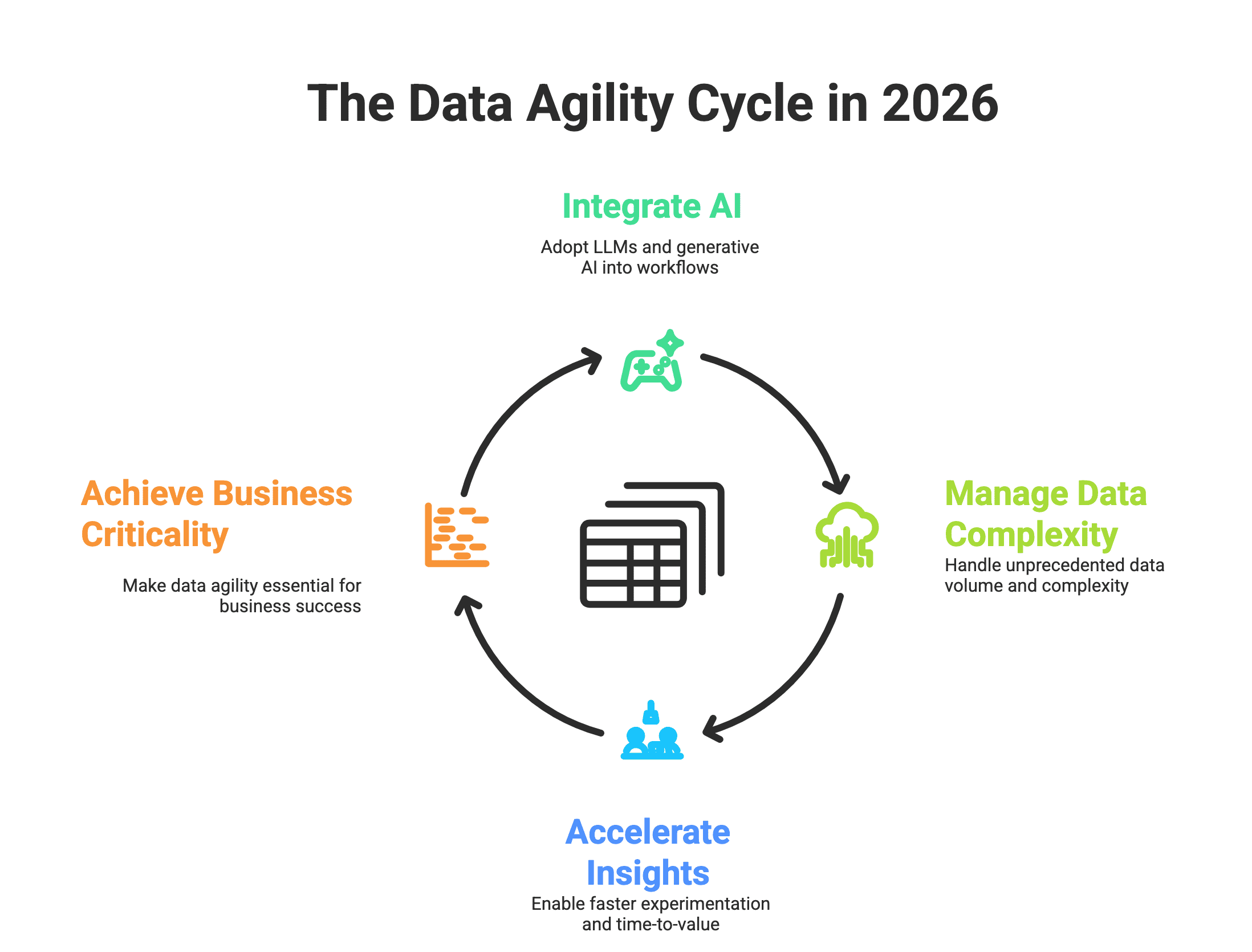
Conclusion
Databricks is a strategic enabler, not just a technical platform. Businesses that adopt Databricks enable data-based decision making & AI-readiness. They reduce technical workloads, tool spread, and costs, and can get direct and indirect ROI and lead their industry verticals.








